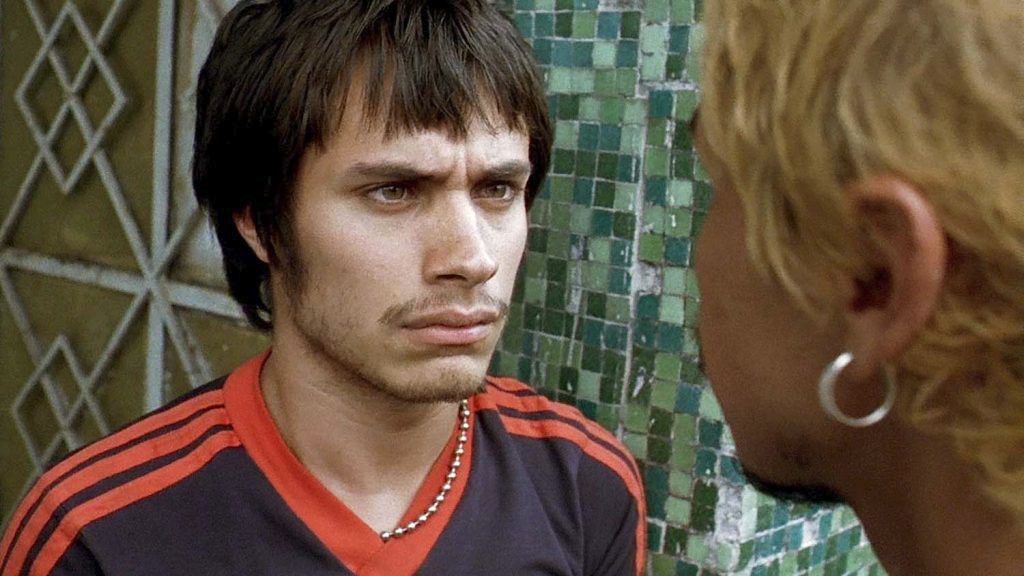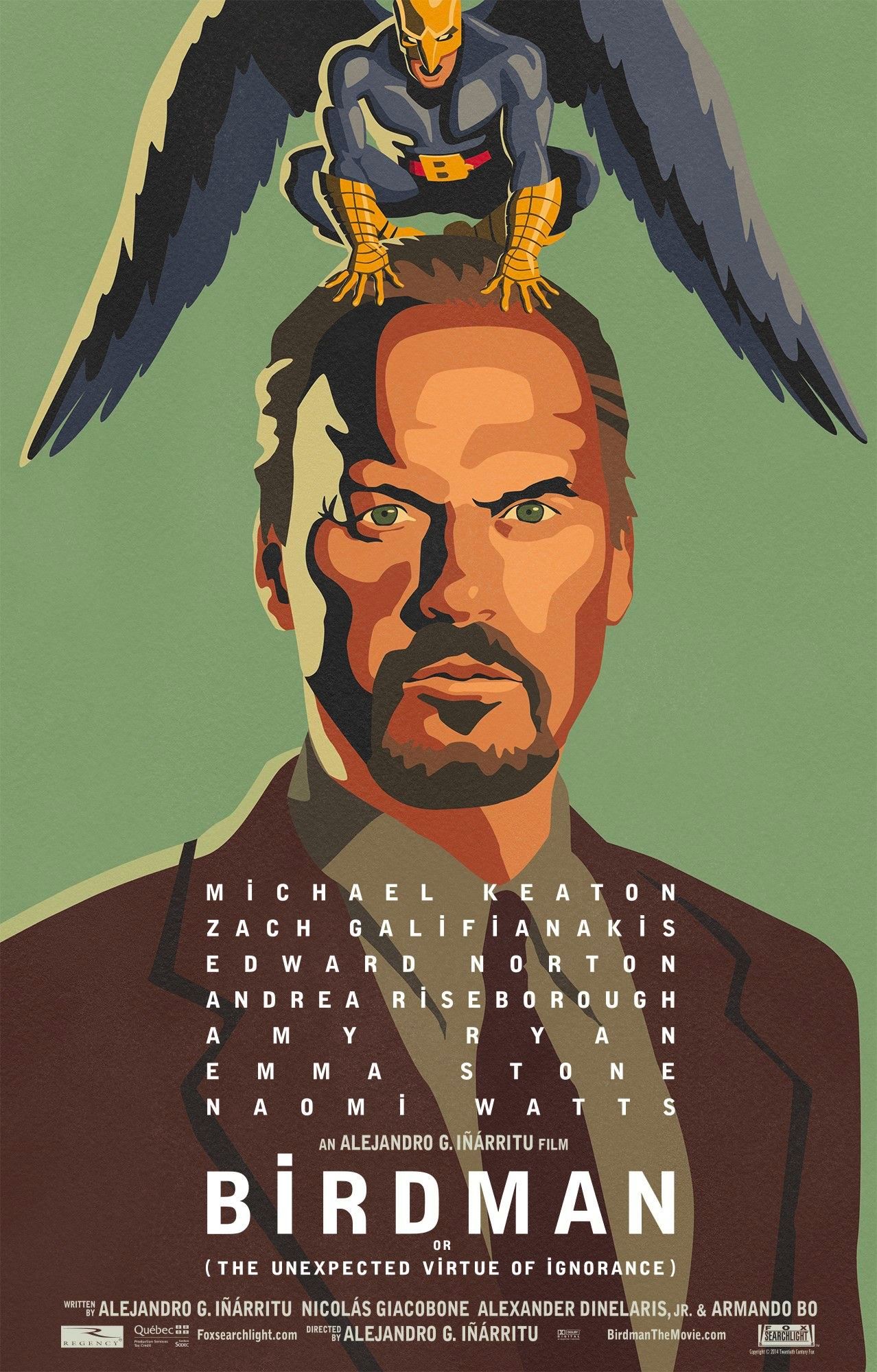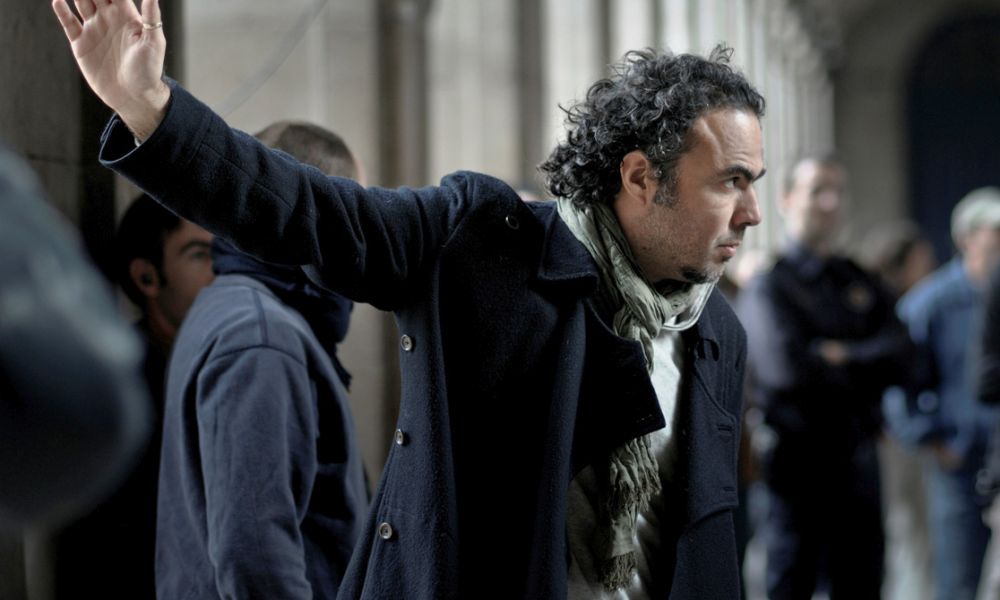"There was a revolution in Mexican film at the start of the twenty-first century and Alejandro González Iñárritu was its leader… Iñárritu has a modernist, almost gauche belief that film has a social, moral and spiritual component." - Lloyd Hughes (The Rough Guide to Film, 2007)
Alejandro González Iñárritu
Director / Producer / Screenwriter / Editor
(1963- ) Born August 15, Mexico City, Distrito Federal, Mexico
21st Century's Top 100 Directors
(1963- ) Born August 15, Mexico City, Distrito Federal, Mexico
21st Century's Top 100 Directors
Key Production Countries: USA, Mexico
Key Genres: Drama, Ensemble Film, Psychological Drama, Urban Drama, Adventure Drama, Action
Key Collaborators: Stephen Mirrione (Editor), Rodrigo Prieto (Cinematographer), Gustavo Santaolalla (Composer), Brigitte Broch (Production Designer), Guillermo Arriaga (Screenwriter), Gael García Bernal (Leading Actor), Nicolás Giacobone (Screenwriter), Armando Bo (Screenwriter), Jon Kilik (Producer), James W. Skotchdopole (Producer), Arnon Milchan (Producer), Steve Golin (Producer)
Key Genres: Drama, Ensemble Film, Psychological Drama, Urban Drama, Adventure Drama, Action
Key Collaborators: Stephen Mirrione (Editor), Rodrigo Prieto (Cinematographer), Gustavo Santaolalla (Composer), Brigitte Broch (Production Designer), Guillermo Arriaga (Screenwriter), Gael García Bernal (Leading Actor), Nicolás Giacobone (Screenwriter), Armando Bo (Screenwriter), Jon Kilik (Producer), James W. Skotchdopole (Producer), Arnon Milchan (Producer), Steve Golin (Producer)
"A master of weaving intricate, complicated, and seemingly incongruous storylines into one sweeping narrative, he got his start in films as a composer and quickly made the transition to director and screenwriter, first with the short film El Timbre (1996), then with his first feature, Amores Perros (2000), which received an Academy Award nomination as best foreign film." - The Film Encyclopedia, 2012
"A disc jockey, film composer, and television producer before he became a leading figure in Mexico's advertising world, Iñárritu made a splash at Critics' Week in Cannes 2000 with his debut film, Amores Perros… Iñárritu goes for extreme contrasts and big emotions, but he has the talent to pull them off." - Ronald Bergan (Film - Eyewitness Companions, 2006)

Amores perros (2000)
“A radio disc jockey and TV prodigy in his twenties, Alejandro González Iñárritu quickly rose through the ranks of international cinema to become one of the leading voices of the Mexican film world. Iñárritu studied film in the unlikely locale of Maine, as well as Los Angeles, before returning home to Mexico to work in TV. Beginning with Amores Perros (2000), his increasingly ambitious features have proven to be some of the few films not only to cross cultural barriers, but also to capture life on a global scale.” - Joshua Klein (501 Movie Directors, 2007)
"Alejandro González Iñárritu is a Mexican director and producer whose movies—which often feature interconnected stories and a nonlinear narrative—placed him at the forefront of the Mexican film renaissance in the early 21st century." - Encyclopaedia Britannica
“No matter where in the world he makes movies, Alejandro González Iñárritu's work has a hectic, randomly hewn rhythm that evokes Mexico City, his home town. Juggling interconnected tales of happenstance and fate, he not only keeps all the balls in the air, he does so with style to spare.” - Matt Glasby (A-Z Great Film Directors, 2015)
"21 Grams is Magnolia grown on hemlock, perhaps, and has far fewer lives than Paul Thomas Anderson dared play with. Nor are the people as likeable or as humane. And that may be a crucial difference so far in this most intriguing career. There are implausibilities in Magnolia that we ride over. In 21 Grams they are holes we fall into. How much of that is because of the determined gloom that hangs over 21 Grams and makes the fine acting seem a little tortured? Still, the move from Amores Perros to north of the border is fascinating and it leaves one feeling that Iñárritu is more inclined to work in the United States." - David Thomson (The New Biographical Dictionary of Film, 2010)
"From the start, the director – who these days shortens his on-screen credit to the more Anglo-friendly Alejandro G Iñárritu – has been noted for his films’ ambition and ferocious energy. His 2000 debut, Amores Perros, was a confrontational mix of domestic melodrama and crime story, involving star-crossed teenage love, multiple car pile-ups and brutally realistic glimpses of Mexico City’s dog-fighting underworld. Similarly kinetic, but in a very different vein, 2015’s Oscar-winning Birdman dazzled with its mix of backstage comedy and long takes, stitched into one seamlessly continuous rush of action." - Jonathan Romney (The Observer, 2016)
"At a time when the commercialisation of cinema is a concern for many, Mexican auteur Alejandro G. Iñárritu should definitely be seen as one of its few remaining defenders. Although his films have often split public opinion, Iñárritu has always remained true to his own vision of cinema." - Swapnil Dhruv Bose (Far Out Magazine, 2023)
"I think every film in a way is an extension of yourself. No matter what. Every film that I have done is an extension of myself. Sometimes I feel that the films start blending with reality. Suddenly there’s a weird blurred line that disappears and what’s going on thematically in the film starts surrounding your life in a very real way. That has happened to me many times." - Alejandro González Iñárritu (The Talks)
Selected Filmography
{{row.titlelong}}
Alejandro González Iñárritu / Favourite Films
Andrei Rublev (1966) Andrei Tarkovsky, L'Avventura (1960) Michelangelo Antonioni, Contempt (1963) Jean-Luc Godard, The Discreet Charm of the Bourgeoisie (1972) Luis Buñuel, La Dolce vita (1960) Federico Fellini, Ordet (1955) Carl Theodor Dreyer, Persona (1966) Ingmar Bergman, Playtime (1967) Jacques Tati, The Tree of Wooden Clogs (1978) Ermanno Olmi, You, the Living (2007) Roy Andersson.
Source: Sight & Sound (2022)
Andrei Rublev (1966) Andrei Tarkovsky, L'Avventura (1960) Michelangelo Antonioni, Contempt (1963) Jean-Luc Godard, The Discreet Charm of the Bourgeoisie (1972) Luis Buñuel, La Dolce vita (1960) Federico Fellini, Ordet (1955) Carl Theodor Dreyer, Persona (1966) Ingmar Bergman, Playtime (1967) Jacques Tati, The Tree of Wooden Clogs (1978) Ermanno Olmi, You, the Living (2007) Roy Andersson.
Source: Sight & Sound (2022)
Alejandro González Iñárritu / Fan Club
Paul Julian Smith, Michael Mann, Houshang Golmakani, Stephen Holden, Cyrus Frisch, Kim Skotte, Richard Roeper, Jonathan Romney, Roger Ebert, Fernanda Solórzano, Elliott Stein, Michael Wilmington.
Paul Julian Smith, Michael Mann, Houshang Golmakani, Stephen Holden, Cyrus Frisch, Kim Skotte, Richard Roeper, Jonathan Romney, Roger Ebert, Fernanda Solórzano, Elliott Stein, Michael Wilmington.
"Fan Club"
These film critics/filmmakers have, on multiple occasions, selected this director’s work within film ballots/lists that they have submitted.
These film critics/filmmakers have, on multiple occasions, selected this director’s work within film ballots/lists that they have submitted.


